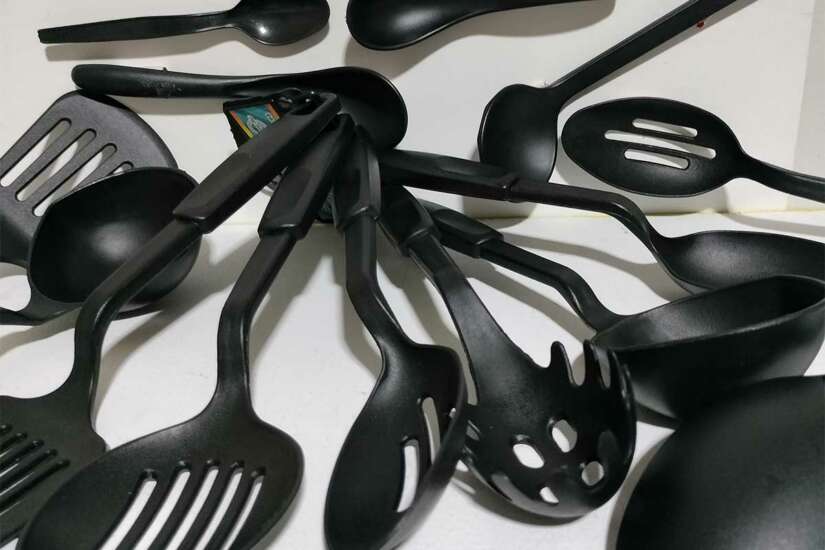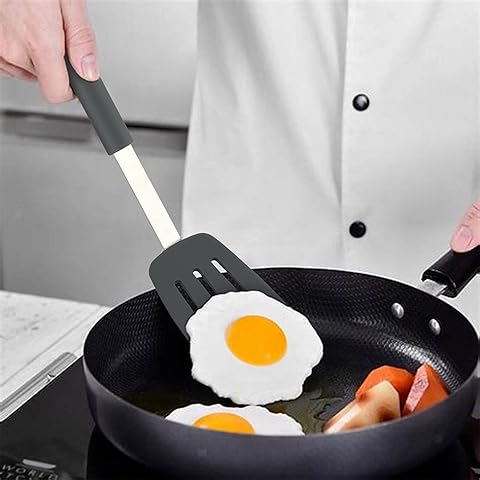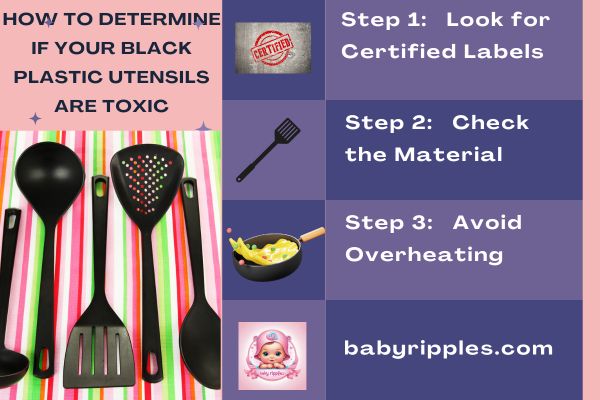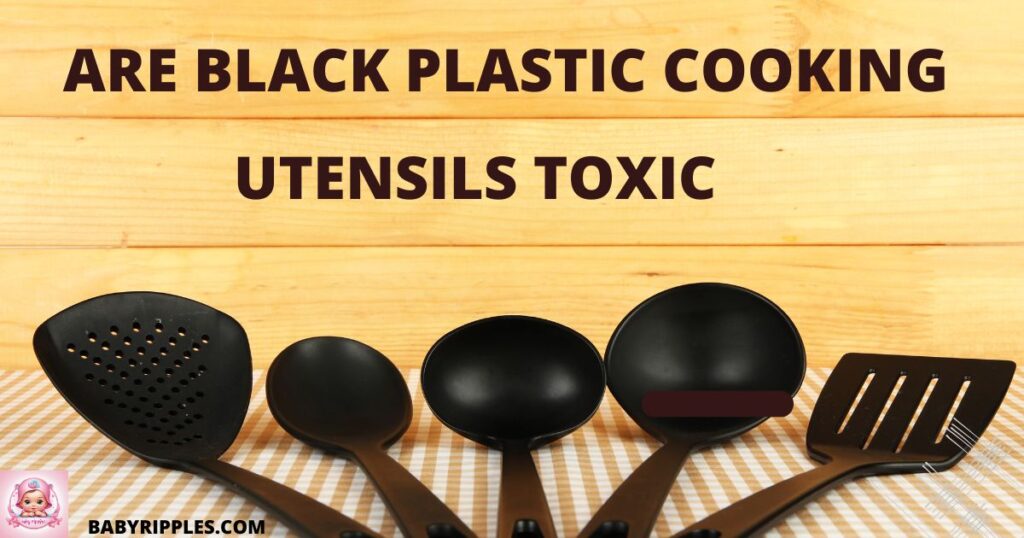Every kitchen needs cooking equipment since they enable us to prepare meals for our family. Concern over black plastic cooking utensils, however, has grown recently. Are they secure? Are they putting dangerous chemicals into your food? The safety of your family is your top priority as a parent, and these issues merit consideration.
In this article, we’ll explore are black plastic cooking utensils toxic , dive into scientific studies, and provide practical steps to help you make safer choices for your home.
You may want to read: How to Baby Proof Plants
- What Are Black Plastic Cooking Utensils?
- Why Are People Concerned About Black Plastics?
- Potential Risks of Using Black Plastics
- How to Determine If Your Black Plastic Utensils Are Toxic
- Safer Alternatives to Black Plastic Cooking Utensils
- Tips for Parents to Reduce Exposure to Toxic Chemicals
- FAQs About Black Plastic Cooking Utensils
- Final Thoughts on Black Plastic Cooking Utensils
What Are Black Plastic Cooking Utensils?

Tongs, ladles, and spatulas made of black plastic are frequently seen in kitchens all around the world. Their cost, resilience to heat, and longevity make them popular. However, the fact that these utensils are usually composed of repurposed materials, including electronics, raises questions about why they are black.
Recycling electronics sounds eco-friendly, but it can introduce chemicals like brominated flame retardants (BFRs) into the plastic. These substances, designed to reduce fire risk in electronics, can pose risks when repurposed into kitchenware.
Why Are People Concerned About Black Plastics?
The concern lies in the recycling process. When electronics are recycled, chemicals like BFRs, which don’t break down easily, often end up in new products, including black plastic cooking utensils.
Potential Risks of Using Black Plastics

- Chemical Leaching: When exposed to heat during cooking, harmful chemicals from black plastics may leach into your food.
- Toxic Substances: Studies, such as one by Toxic-Free Future, have found that black plastic utensils can contain flame retardants linked to health problems like hormone disruption, developmental issues in children, and even cancer.
- Persistent Contaminants: These chemicals, classified as “forever chemicals,” don’t degrade in the environment or our bodies, meaning their effects could accumulate over time.
How to Determine If Your Black Plastic Utensils Are Toxic

Step 1: Look for Certified Labels
Opt for utensils that carry safety certifications like FDA approval or BPA-free labels. This ensures they meet safety standards.
Step 2: Check the Material
Materials like silicone, stainless steel, and wood are often safer alternatives. If a black plastic utensil is labeled as “heat-resistant nylon” but lacks certifications, consider avoiding it.
Step 3: Avoid Overheating
Even if labeled safe, avoid exposing plastic utensils to extreme heat. High temperatures can increase the likelihood of chemical leaching.
Safer Alternatives to Black Plastic Cooking Utensils

If you’re worried about the risks, consider swapping out your black plastic cooking utensils for safer options:
1. Silicone Cooking Utensils
Silicone is a non-toxic, heat-resistant material perfect for cooking. It doesn’t leach harmful chemicals, even at high temperatures.
2. Stainless Steel Tools
Durable and versatile, stainless steel is a favorite among home cooks and chefs alike. It’s entirely free from chemicals and ideal for high-heat cooking.
3. Wooden Utensils
Wooden spatulas and spoons are natural and chemical-free. They’re also gentle on non-stick cookware, making them an excellent choice for everyday use.
Tips for Parents to Reduce Exposure to Toxic Chemicals

- Avoid Black Takeout Containers: These often contain recycled materials with BFRs. Use glass or stainless steel for food storage and reheating.
- Choose Kid-Safe Products: Pay attention to black plastic toys, which may also contain harmful substances. Opt for natural materials like wood or products certified free from toxic chemicals.
- Upgrade Your Kitchen Tools: Gradually replace your black plastic cooking utensils with safer alternatives to ensure your family’s health.
- Educate Yourself: Stay informed by following organizations like Toxic-Free Future and Environmental Working Group (EWG) for updates on product safety.
FAQs About Black Plastic Cooking Utensils
1. Is black plastic toxic?
Yes, many black plastic items contain chemicals like brominated flame retardants (BFRs) that can be harmful when leached into food.
2. Are black plastic cooking utensils more toxic than other plastics?
Research suggests that black plastics made from recycled electronics can be more toxic due to higher levels of harmful chemicals.
3. How can I tell if my cooking utensils are safe?
Look for labels like FDA-approved or BPA-free. Consider switching to materials like stainless steel or silicone for added peace of mind.
4. What happens if I use black plastic utensils regularly?
Frequent use of potentially toxic utensils may expose your family to harmful chemicals that can accumulate in the body over time, causing health risks.
5. What are the safest materials for cooking utensils?
Silicone, stainless steel, and wood are the safest alternatives to black plastic cooking utensils.
Final Thoughts on Black Plastic Cooking Utensils
Although black plastic utensils are inexpensive and practical, it is worthwhile to think about alternatives due to the possible hazards they provide, particularly to families and small children. You may lessen exposure to dangerous chemicals and make your kitchen a healthier place by using safer products and remaining knowledgeable.
Your family’s health is priceless. Start replacing your kitchen tools with safer options today and cook with confidence knowing your loved ones are safe.





